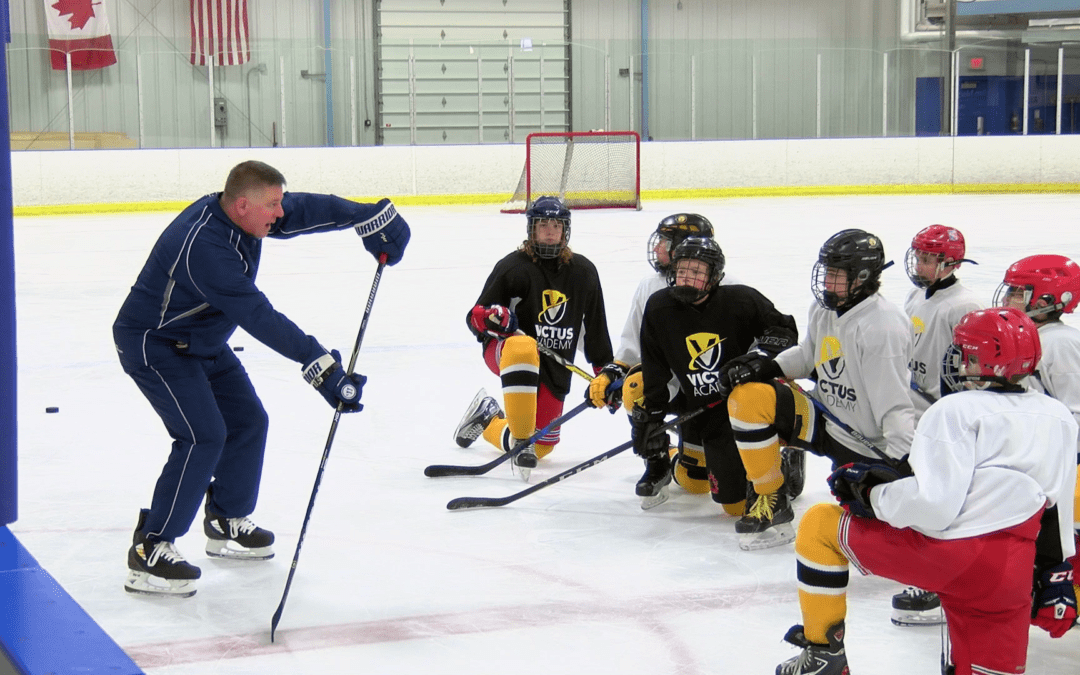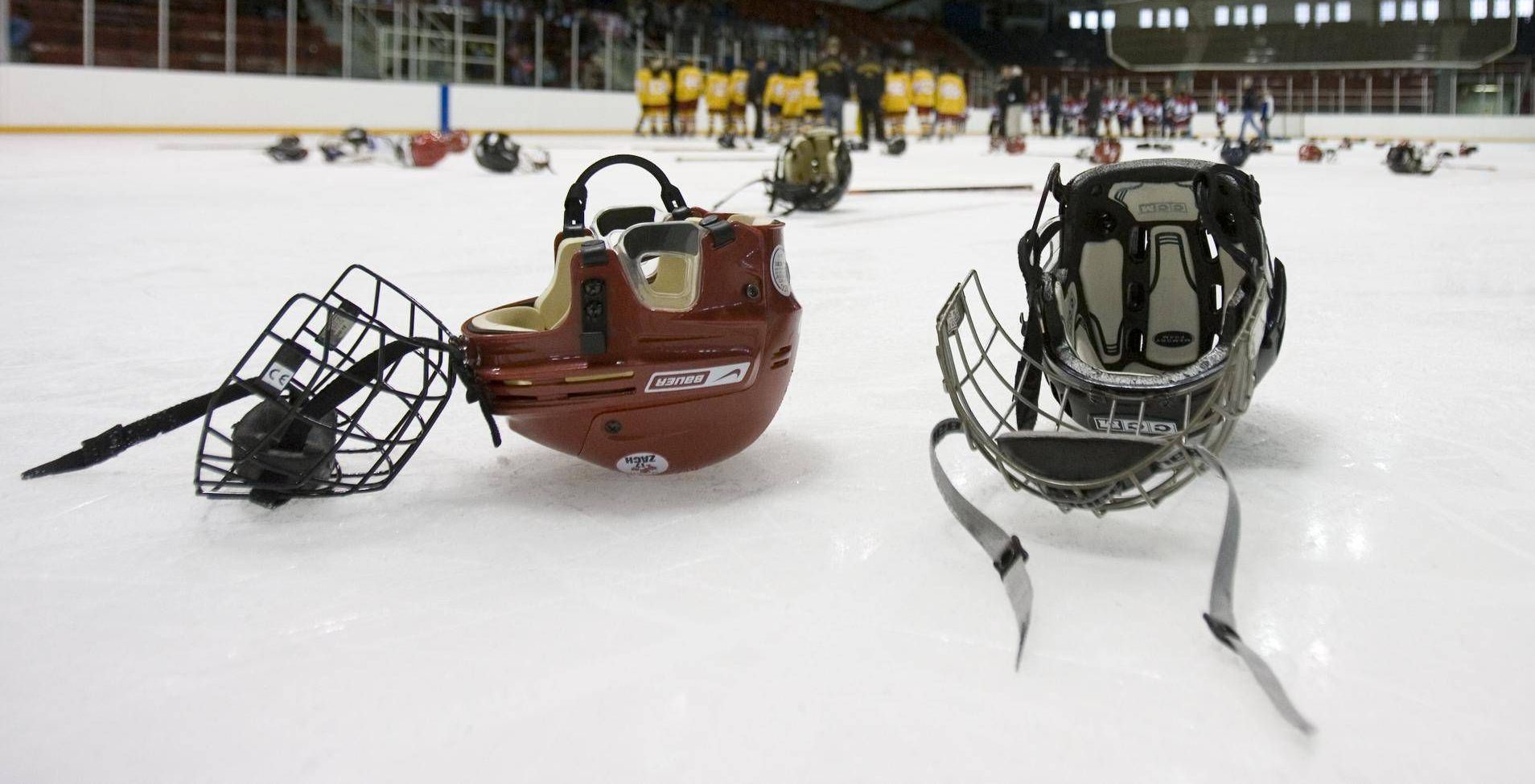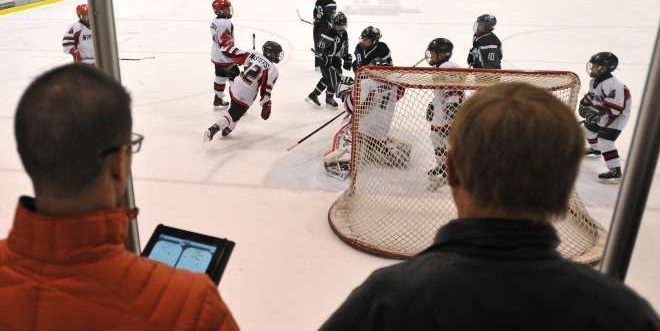Introduction
For anyone who has played hockey at any level, you already know that each coach along the way has had a different philosophy. At the end of the day, the most important of the coach’s job is player development. The development of skills, knowledge of the game, and sportsmanship.
Coaching is usually broken down into three distinct styles: authoritarian, democratic, and holistic or laissez-faire. It is a bit of a generalization, but for the most part, all coaches fall under one of these types. Is there a right or wrong way to coach youth hockey? Definitely not. With kids, it is more likely that a less authoritarian style would achieve a better connection with the players.
At the same time, players at an early age need help staying focused and the basics of the game need to be instilled. Perhaps an authoritarian coach would find it easier to get this message across.
In this article, we’ll examine each of these coaching types and the pros and cons of applying them to minor hockey.
Authoritarian Coaching
Typically seen as the strictest form of coaching, authoritarian coaches are like drill instructors. They have complete control over practices and expect to have the full attention of their players. This is far from a two-way conversation and these coaches generally rule with an iron fist.
Pros of Authoritarian Coaching
Hockey is a sport where players need to be focused, especially during games. An authoritarian coach would be able to help younger players stay on task and provide an added shot of discipline as well.
If the coach is well-respected and the team is succeeding, the players will usually buy in. Authoritarian coaches are usually feared and seen as authoritative figures by players which can lead to a well-disciplined team that is cohesive on and off the ice.
Cons of Authoritarian Coaching
Authoritarian coaching is a little outdated and can often be considered too harsh for younger players who are new to the game. While it might help younger players focus, it can also turn them off from hockey altogether if it is a negative experience.
Authoritarian coaches are usually not liked by parents as well. This style of coaching can receive pushback from both players and parents and can result in a divided dressing room. Finally, even if it works, it has a chance of taking some of the fun out of hockey for younger players.
Democratic Coaching
Democratic coaching is the style that is most frequently used with youth hockey players. As the name suggests, this coaching style includes the players almost as equals when it comes to the team achieving its goals. This usually results in a friendlier, although not always more successful experience for players.
Pros of Democratic Coaching
The coach is still involved but allows the team to share in goal-setting and learning. There is usually a strong two-way relationship between players and coaches, and parents are also encouraged to join in the discussions.
For younger players, this is definitely a more positive environment to learn in. They do not need to fear punishment like from an authoritarian coach and can build confidence if they make a mistake. This style also builds a strong connection between the players and the coach and often leads to a positive team experience.
Cons of Democratic Coaching
Democratic coaches often cross the line between being an authority figure and being a player’s friend. There needs to be that divide in order for the team to succeed. This can often be difficult for coaches especially when it comes to younger players.
While team goals can be established and worked on by everyone, a democratic coaching style can also lead to a loss of focus. Without fear of punishment or failure, players may not develop as fully. It creates a friendly environment but there may not be enough emphasis on winning and overcoming challenges to succeed as a team.
Holistic Coaching
Holistic or Laissez-Faire coaching is the most hands-off approach. Laissez-faire refers to the French saying that means “let them be” or “leave them alone”. As you might expect, this isn’t a great coaching strategy to use when it comes to minor hockey.
Pros of Holistic Coaching
Leaving the players alone can be a way for them to figure things out on their own. Hockey is a game that is usually determined by the players and coaches do not have as big of a direct impact, especially at the youth level.
Holistic coaching is a non-complicated way to ease players into their first couple of seasons of hockey. After all, these young players are still learning the basics like staying on their skates.
Cons of Holistic Coaching
The cons of this style of coaching are fairly obvious: the coach is entirely missing as an authority figure for the players. The players are mostly left to their own devices and it is difficult to build cohesiveness as a team.
For younger players, it can be a difficult way to develop the skills needed to learn the game. It’s almost as if there isn’t any coach at all. Not having enough authority for the team can also be a negative experience for younger players.
Conclusion
Is there a right way to coach youth hockey? It really is up to the coach and how they apply their style on and off the ice. For developing players, the best coaching style is likely a hybrid of authoritarian and democratic.
Authoritarian coaching can help with player focus and discipline. Democratic coaching can help players develop team-building skills and reinforce that hockey is the ultimate team game.







